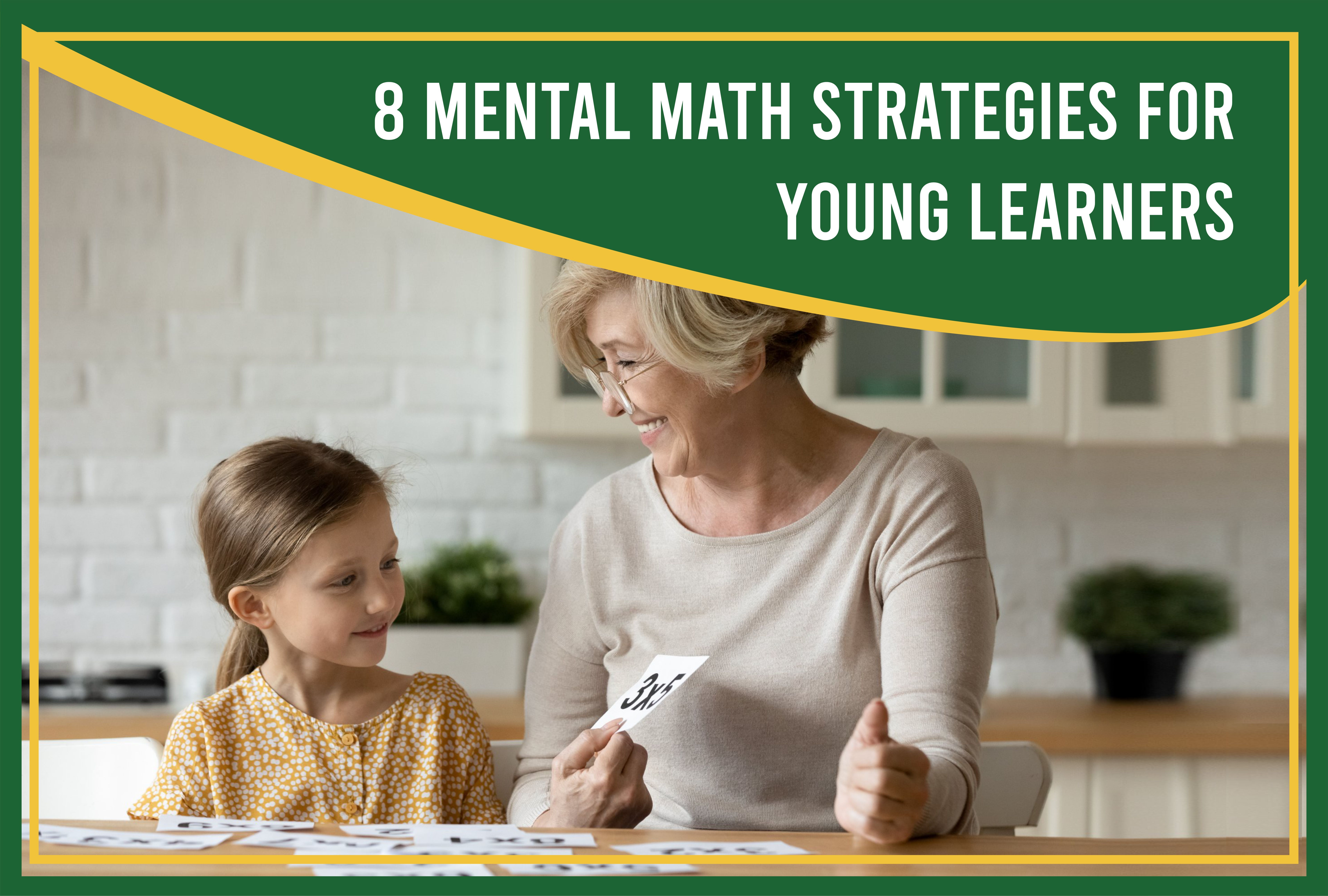8 Mental Math Strategies for Young Learners
Some kids seem to have a natural knack for understanding numbers and solving problems. Sadly for others, math can be a more challenging subject. But one of the most important things young learners can do to improve their math skills is develop strong mental math strategies.
Mental math is the ability to do calculations in your head, and it's a valuable skill for everyday life and formal education. Fortunately, there are a number of different mental math strategies that young learners can use to improve their skills.
Help your young learner set themselves up for success in math class and beyond with these eight mental math strategies!
Start with visual aids
One way to make mental math easier is to provide young learners with some visual aids. For example, if your child is working on addition, you could draw a picture of two objects and then ask them how many are in total. This will help them visualize the problem and come up with the answer more quickly.
Use their fingers
For many kids, using their fingers is an effective way to do mental math. So if your child is struggling to solve a problem in their head, encourage them to use their fingers to keep track of the numbers. This can be especially helpful for addition and subtraction problems.
For instance, if your child is trying to figure out what 7+5 is, they can put up seven fingers and then add five more. This will help them keep track of the numbers and come up with the answer more easily.
Draw a picture
Another way to make mental math easier for young learners is to have them draw a picture of the problem they're trying to solve. This can be especially helpful for word problems, as it can make it easier for kids to visualize what's going on.
For example, if your child is trying to solve a word problem about two dogs with a total of 14 puppies, having them draw a picture of the dogs and their puppies can be a helpful way to keep track of the information.
Use manipulatives
Manipulatives are objects that can be moved around and manipulated, and they can be a helpful tool for young learners struggling with mental math. For example, if your child is having trouble understanding what 6+4 is, you could give them six coins and have them add four more. This will help them see the problem in a concrete way and come up with the answer more easily.
Repeat the problem aloud
Sometimes, all it takes to solve a mental math problem is to repeat it aloud a few times. This can help kids process the information and find the answer more easily. So if your child is having trouble solving a problem in their head, encourage them to say it aloud a few times.
Break it down into smaller steps
If your child struggles to solve a mental math problem, try breaking it down into smaller steps. For example, if they're having trouble understanding what 7+5 is, you could have them add 7+3 and then add 2 more. This will help them take one step at a time and come up with the answer more quickly.
Use estimation
Estimation is a valuable skill that can help kids with mental math. For example, if your child is trying to figure out what 8+6 is, they can estimate it's about 10+5. This will help them get in the ballpark of the answer and then use the other mental math strategies on this list to narrow down the exact answer.
Practice, practice, practice
Of course, the best way to improve your child's mental math skills is to encourage them to practice as often as possible. There are several fun ways you can do this at home. For example, you could play math games together or set up some simple word problems for them to solve. You can also play multiplication war to harness their multiplication facts in no time!
You can also help them practice their mental math skills in everyday life. For instance, when you're driving, you could ask them to estimate how long it will take to get there. Or, when you're at the grocery store, you could have them help you figure out the total cost of your purchase. The more opportunities they have to practice, their mental math skills will improve.
Encouraging your child to use mental math strategies is a great way to help them build their math skills. These eight strategies can be helpful for young learners to do mental math like a pro in no time!
Our numeracy program at Mrs. Myers' Learning Lab focuses on mathematical concepts along with student interaction through problem-solving tasks. Students in our math program get the chance to use modern technology by writing and illustrating their own problem-solving book in our patent-pending build-a-book app which we then print out and give to our students to keep. Visit us to learn more!





